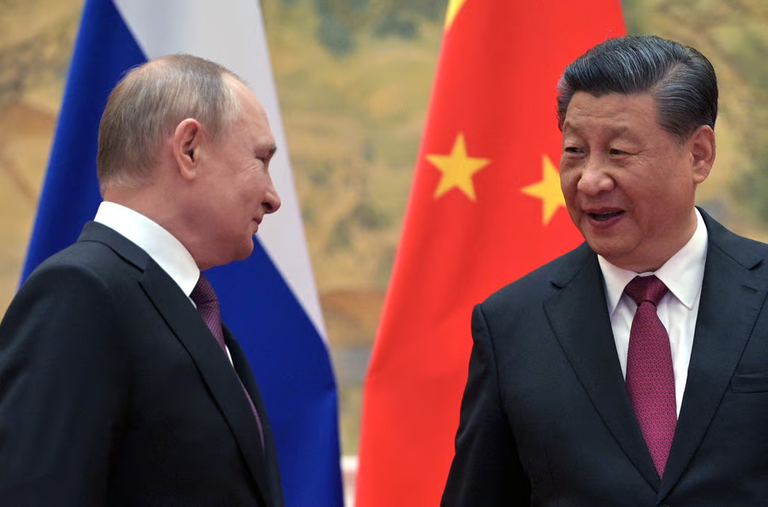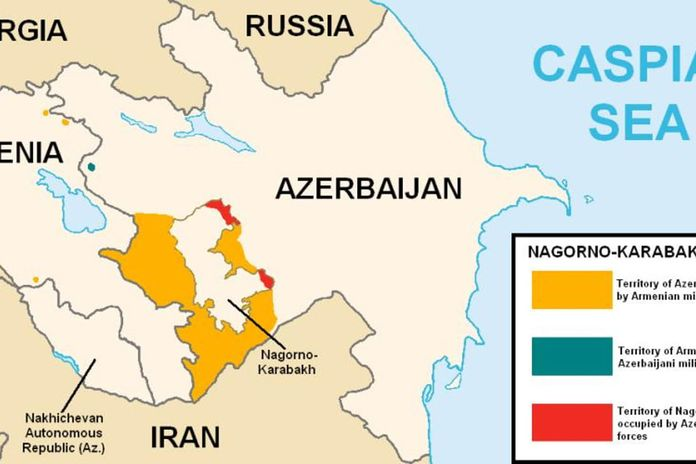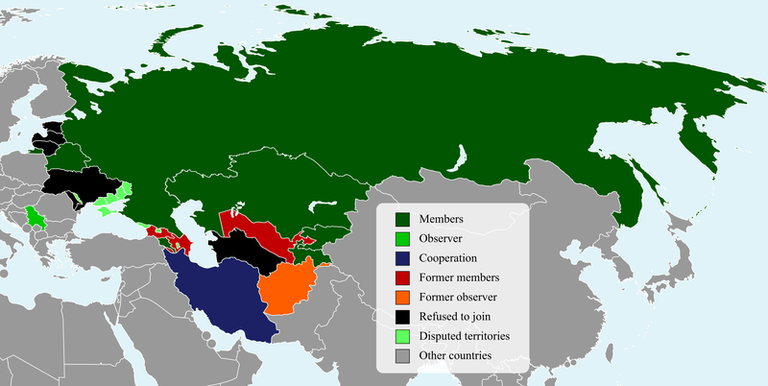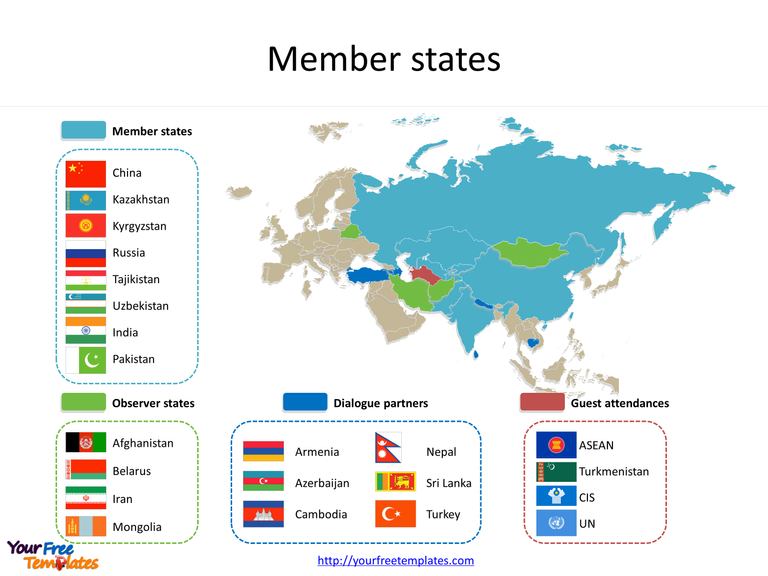The Collective Security Treaty Organization (CSTO), otherwise known as the CSTO, is an alliance formed in 1992 after the collapse of the Warsaw Pact. It is centered around a mutual defense agreement and composed of six post-Soviet states: Russia, Belarus, Armenia, Kazakhstan, Kyrgyzstan, and Tajikistan. In recent times, the alliance has become increasingly fragile due to disagreements between its members, particularly over Russia's failure to help defend against Azerbaijan's aggression. This culminated in Armenia's parliamentary speaker warning that the country was considering leaving the alliance. In comparison to NATO, the CSTO has proved to be much weaker and less unified.

The war in Ukraine has undermined the Collective Security Treaty Organization (CSTO) because of the organization's heavy reliance on Russia. As the leading military power in the alliance, Russia accounts for approximately 95% of all military spending within the CSTO. In comparison, the United States accounts for approximately 70% of all military spending within NATO, despite having a smaller percentage. The CSTO's charter also prohibits members from joining other military alliances, making member states even more dependent on Russia. This dependence on Russia has put strain on the CSTO as a result of the war in Ukraine.
There are basically two reasons why the CSTO looks more fragile than ever. Firstly, as post-Soviet states, other CSTO members are very wary of Putin's neo-Soviet ambitions. If Putin decides to invade Ukraine, what would stop him from invading, say, Kazakhstan next? This puts post-Soviet countries in a particularly uncomfortable position because they are now exclusively reliant for defense on the same country that they are worried might invade them. Secondly, with Russia preoccupied in Ukraine, the organization has become essentially pointless because no other country in the grouping has the capacity to defend any of the other members. This became particularly apparent in early September when, in a significant escalation of the Nagorno-Karabakh conflict, Azerbaijani forces attacked Armenian positions in Armenia proper.

The CSTO mutual defense clause was not activated when Azerbaijan attacked Armenian forces in 2020 because the attack occurred on disputed territory. Russia still guaranteed Armenia's security and mediated a ceasefire between the two countries. However, when Azerbaijan attacked Armenian territory again, Russia did not provide assistance, leading Armenia to try and activate the defense clause but Russia refused. As a result, Armenia refused to participate in the CSTO's joint exercises in Kazakhstan and has reached out to Iran for security support. This has caused Azerbaijan to be warned by Iran about potential "countermeasures." The speaker of the Armenian Parliament has even suggested that Armenia may leave the CSTO due to its lack of support.
Similar incidents have occurred in Kyrgyzstan and Tajikistan, where a long-standing border dispute has been ongoing since the dissolution of the Soviet Union. In the past, Russia has played a key role in keeping the peace between the two countries. However, the war in Ukraine has severely diminished Russia's peacekeeping capabilities, leading to an escalation of tensions between Kyrgyzstan and Tajikistan. In September, Tajikistan launched a full-blown assault on Kyrgyzstan's positions in disputed areas. In response, Kyrgyzstan's military refused to participate in the CSTO's joint exercises in Kazakhstan due to the ongoing tensions with Tajikistan. This escalation of tensions is a direct result of Russia's diminished peacekeeping capacity.

So, you get the idea: Russia's invasion of Ukraine has put a serious strain on intra-CSTO relations. Both Armenia and Kyrgyzstan have refused to take part in exercises, and Armenia is explicitly considering leaving the organization altogether. So, does that mean that the CSTO is now at risk of total collapse? Well, in the immediate future, the CSTO's collapse does still look unlikely, but it is definitely possible in the medium- to long-term. Whether the organization survives will largely depend on two things: Ukraine and China.
The future of the Collective Security Treaty Organization (CSTO) is closely tied to the outcome of the war in Ukraine. If the war continues or Ukraine is victorious, the CSTO is likely to continue struggling because Russia will no longer have the military capacity or political capital to maintain its leadership role in the alliance. However, if Russia achieves some sort of victory or a negotiated settlement is reached, the CSTO stands a better chance of surviving. Once the conflict in Ukraine calms down, Russia will have more military capacity available and may even deploy international peacekeeping forces to annex parts of Ukraine in the event of a negotiated settlement.
The other variable here is China: CSTO members are unlikely to leave the alliance unless some other regional superpower can guarantee their security, and the only other country with the required military and political capital, at least in Central Asia, is China. And as relations between Russia and the Central Asian CSTO members have soured, China has quietly started to replace Russia in the region. At the moment, China's influence in Central Asia is mostly economic; China is the largest trading partner for many of these countries, and Central Asia is at the center of Xi Jinping's infamous Belt and Road Initiative. However, that's not the only tool China has, because China's main vehicle for political cooperation in the region is the Shanghai Cooperation Organization (SCO). The SCO actually began as the Shanghai Five, and it was created after the collapse of the Soviet Union gave China four new neighbors overnight: Kazakhstan, Kyrgyzstan, Tajikistan, and Russia. As such, the Shanghai Five were originally focused on the demilitarization of post-Soviet borders.

And it was essentially led by the Chinese. However, as regional instability increased in the late 1990s, in large part due to Afghanistan, the Shanghai Five was renamed the Shanghai Cooperation Organization (SCO) after the inclusion of Uzbekistan in 2001. The SCO established an anti-terrorism unit called the Regional Anti-Terrorism Structure (RATS). Today, the SCO is a confused mishmash of different parts: RATS is still operational, albeit with a tiny force, but there's also the SCO Banking Consortium to encourage economic ties, and now the SCO University Network with 54 affiliated universities. Essentially, at the moment, the SCO doesn't have an obvious purpose, but if China decided to step up its role as a regional security guarantor, it could do so via the SCO and RATS. This doesn't look likely at the moment, but China's influence in the region is consistently increasing, so it's not impossible, especially if Russia keeps its eye off the ball.